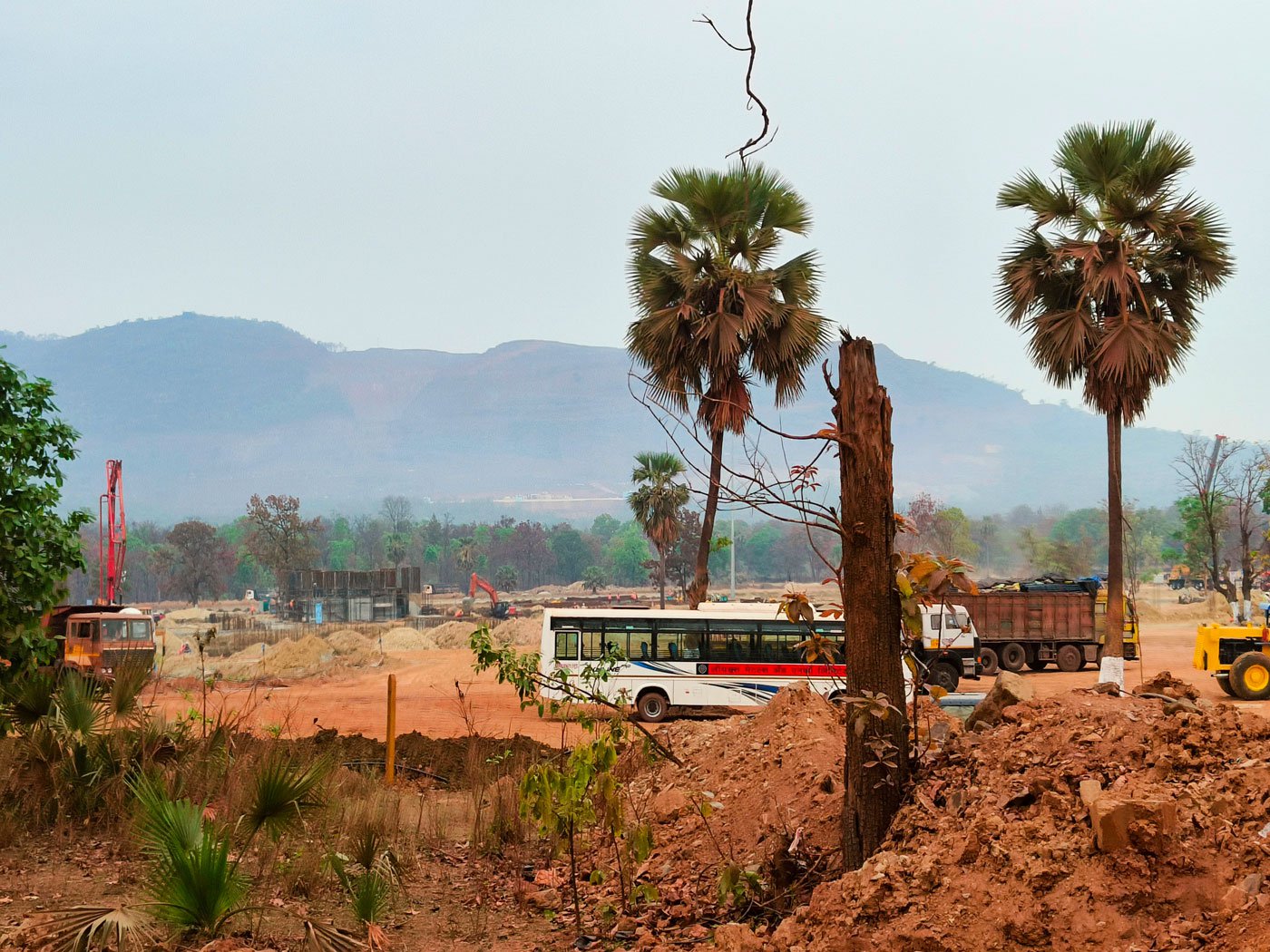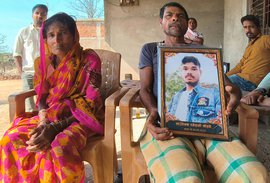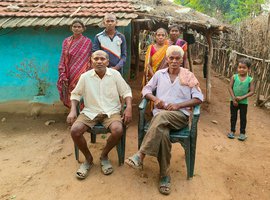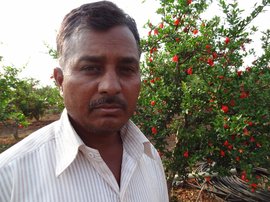A week before the Lok Sabha elections began, nearly 1,450 gram sabhas of Gadchiroli district declared their conditional support to the Congress candidate Dr. Namdev Kirsan. This was an unprecedented move, seven days before the region went to vote on April 19, in the first of seven phases of the General Elections 2024.
Unprecedented, because in a district where the tribal communities hardly ever openly take political sides, the support of the gram sabhas across 12 tehsils surprised the Congress and rattled the Bharatiya Janta Party (BJP). Sitting Member of Parliament (MP) Ashok Nete of the BJP is seeking re-election for the third successive term.
Over a thousand office bearers and representatives of the gram sabhas waited patiently in Suprabhat Mangal Karyalaya, a wedding hall in Gadchiroli city, all day on April 12, for the Congress’ candidate and leaders to hold an open meeting. In the evening, Lalsu Nogoti, a lawyer activist from the vulnerable tribal group of Madia from the district’s south-eastern block of Bhamragarh, quietly read out the conditions to Kirsan, who accepted the letter of support and pledged to abide by the demands should he be elected to the Parliament.
Among others, the conditions included a halt to the unabated and mindless mining in forested parts of the district; the smoothening of the rules under the Forest Rights Act; bestowing of community forest rights (CFR) on the villages with pending claims; and a strict adherence to the Constitution of India.
“Our support is for this election only,” the letter made it clear, “we, the people, will take a different stand in the future if there’s a betrayal of the promise.”
Why did the gram sabhas take this step?
“We will provide more royalty to the government than the mines would,” says Sainu Gota, a veteran tribal activist, formerly a leader of the Congress party. “To fell the forests and dig mines in this region would be a mistake.”


Left: Lalsu Nogoti is a lawyer-activist, and among the key gram sabha federation leaders in Gadchiroli. Right: Sainu Gota, a veteran Adivasi activist and leader in south central Gadchiroli, with his wife and former panchayat samiti president, Sheela Gota at their home near Todgatta
Gota has seen it all – the killings, the oppression, the long wait for earning the forest rights, and the continued subjugation of his Gond tribe. A tall and sturdy man in his 60s with a dark pointed moustache, Gota says the gram sabhas which fall under the Panchayat Extension to Scheduled Areas (PESA) of Gadchiroli came together and decided to extend support to the Congress candidate against the BJP’s sitting MP for two reasons: one, the dilutions in the FRA, and two, the threat of mining in the forested areas that would destroy their culture and habitat. “The constant police harassment of the people can’t go on,” he says, “it must stop.”
Three consultations were held before the tribal gram sabha representatives arrived at a consensus and evolved their conditions for the support.
“This a crucial election for the country,” says Nogoti, who was elected to the zilla parishad as an independent candidate in 2017. He is known widely as vakil-saheb in the district. “People decided they must take an informed position.”
Last November (2023), in an instance of unprovoked action, the Gadchiroli police razed the site of a 253-day silent protest by the tribal communities against the prospect of another mine being opened in this iron ore-rich region.
Falsely accusing the protestors of having
attacked a security team, a huge contingent of armed security personnel
allegedly destroyed the site at Todgatta village where protesters from nearly
70 villages had been agitating against the six proposed and auctioned mines in
the Surjagarh area. Their struggle was ruthlessly crushed.


Left: The Surjagarh iron ore mine, spread over nearly 450 hectares of land on the hills that are considered by local tribal communities as sacred, has converted what was once a forest-rich area into a dustbowl. The roads have turned red and the rivers carry polluted water. Right: The forest patch of Todgatta village will be felled for iron ore should the government allow the mines to come up. Locals fear this would result in a permanent destruction of their forests, homes and culture. This is one of the reasons why nearly 1,450 gram sabhas openly supported the Congress candidate Dr. Namdev Kirsan ahead of the Lok Sabha elections
Having witnessed the environmental destruction wrought by the Surjagarh mines, currently operated by a company called Lloyds Metal and Energy Limited, people from small villages and hamlets took turns to sit at the dharna -site; 10-15 people, every four days, for nearly eight months. Their demand was simple: no mining in the area. It was not just to protect their forests. It was also for their cultural tradition – the area is home to many shrines.
The police singled out and rounded up some eight leaders, and slapped cases against them, triggering wide-spread condemnation and unrest among the locals. That was the latest flashpoint.
Now, there is a lull.
Gadchiroli district leads the country with regard to the acknowledgement of CFR, with nearly 1,500 gram sabhas in and outside the areas falling under PESA.
Communities have begun to manage their forests, harvest minor forest produce and hold auctions for better price appreciation, leading to a rise in their incomes. Signs are that the CFRs have provided social and economic stability and brought a turnaround in the decades of conflict and strife.
The Surjagarh mines have been an irritant: the
hills have been excavated; the rivers and rivulets flowing from the hills now
carry red polluted water. For long stretches, you can see massive lines of
trucks ferrying the ore out of the mine-site, heavily secured and fenced. The
forested villages around the mines have shrunk and become a pale shadow of
their original self.


Huge pipelines (left) are being laid to take water from a lake to the Surjagarh mines even as large trucks (right) ferry the iron ore out of the district to steel plants elsewhere


Left: People from nearly 70 villages have been protesting peacefully at Todgatta against the proposed iron ore mines. Right: The quiet and serene Mallampad village lies behind the Surjagarh mines. Inhabited by the Oraon tribe, it has seen a destruction of their forests and farms
Take, for instance, Mallampad village. Locally known as Malampadi, this is a small hamlet of the Oraon community behind the Surjagarh mines in Chamorshi block. Young people here talk about how farming has been severely affected due to the pollutants from the mine. They talk about destruction, devastation, and prevailing health problems. Several tiny hamlets are seeing a destruction of peace by what the outsiders call ‘development.’
Gadchiroli has had a protracted history of violence and strife between the state security forces and the armed guerillas of the CPI (Maoists), particularly fierce in the southern, eastern and northern parts of the district.
Blood flowed. Arrests took place. Killings, trappings, ambushes, beatings went on unabated for three decades. As did hunger and starvation, malaria and a rise in infant and maternal mortality rates. People died.
“Ask us once what we need and want,” quips an ever-smiling Nogoti, among the first generation educated youth of his community. “We have our own traditions; we have our own democratic systems; and we can think for ourselves.”
The large constituency, reserved for the Scheduled Tribes (ST), registered over 71 per cent voting on April 19. On June 4, after the counting of votes, when the country gets a new government, we will know if the move by the gram sabhas made any difference.



